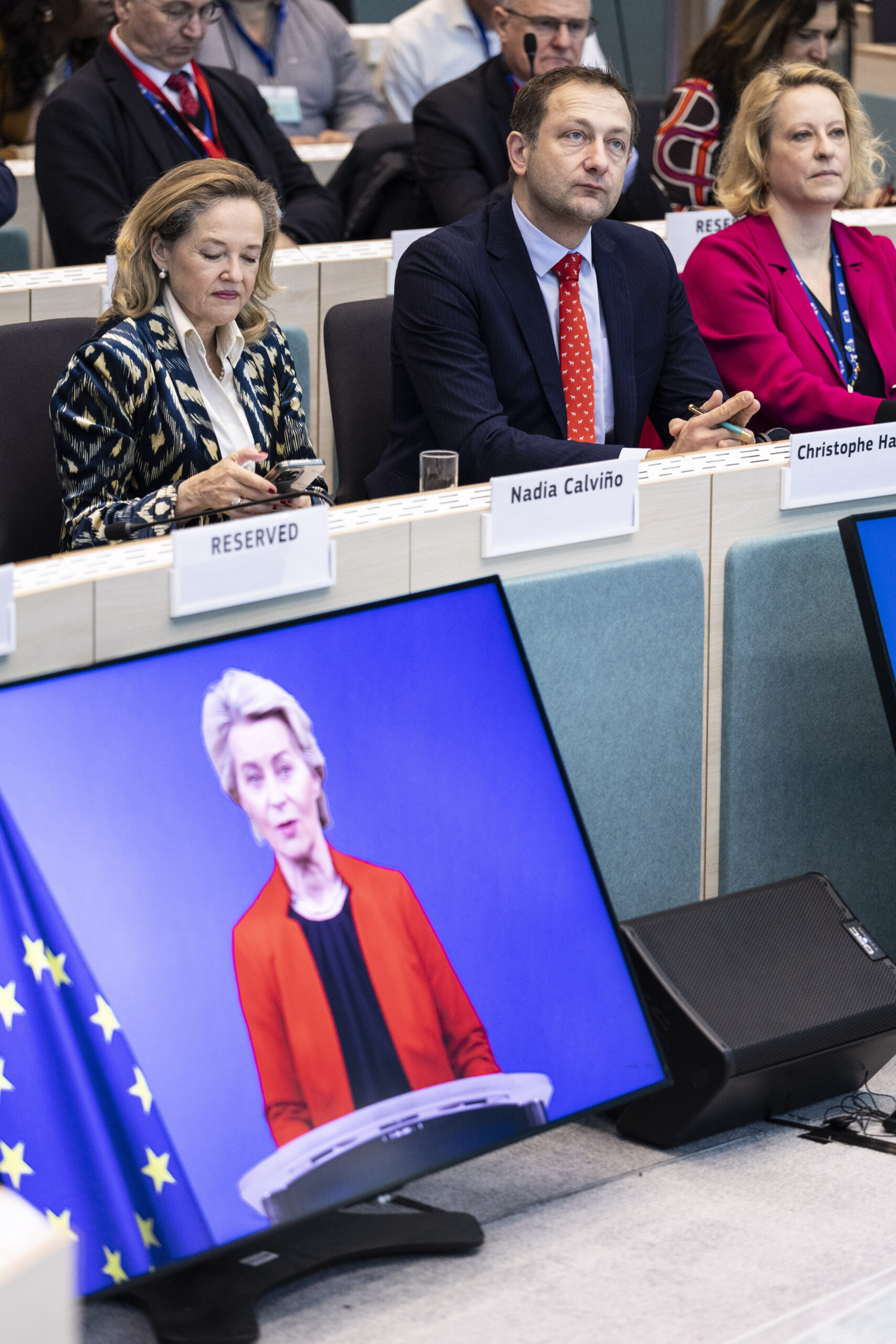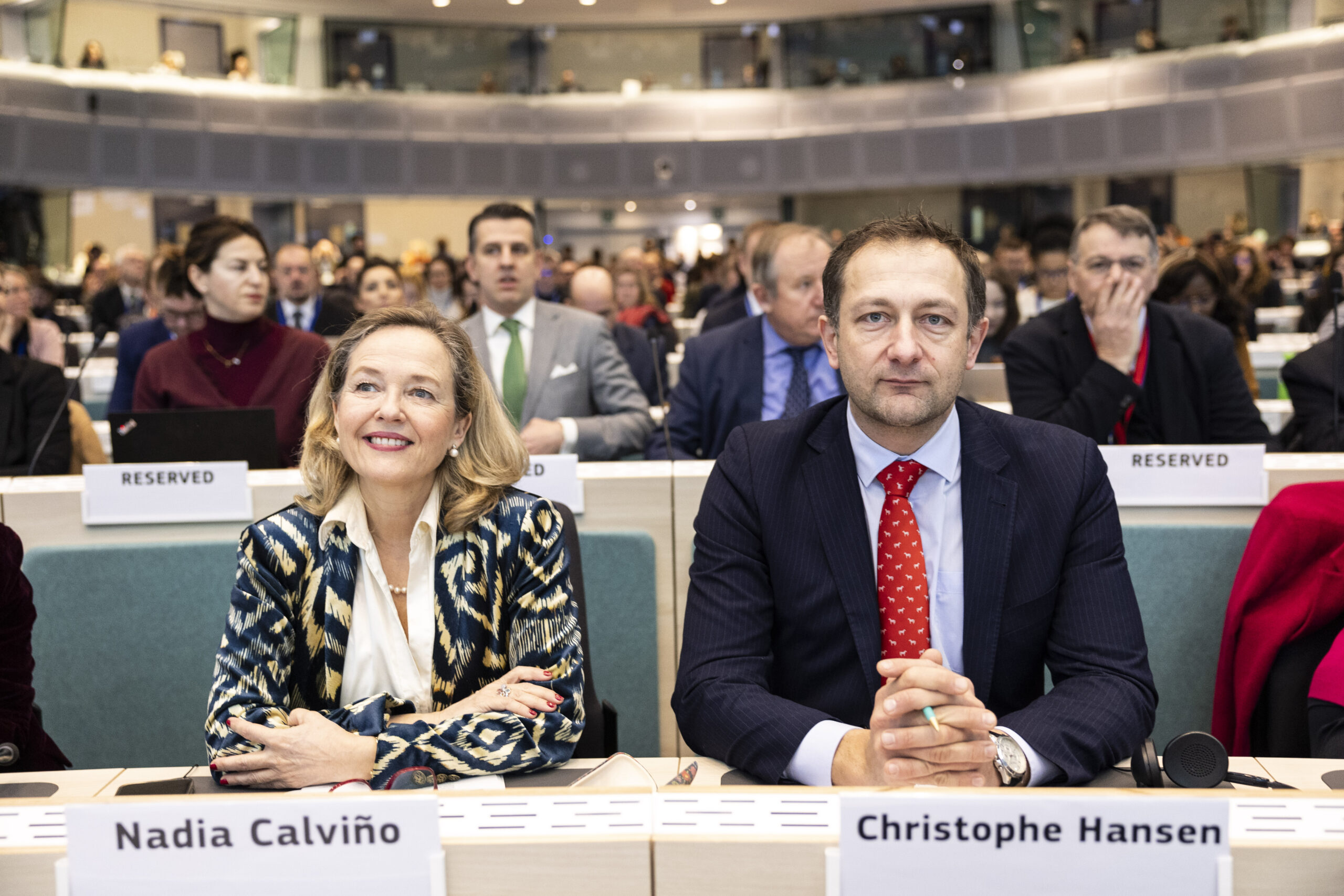Brussels – Two new proposals to protect farmers’ incomes and strengthen their position in the agribusiness supply chain and the announcement of a €3 billion investment plan for young people who want to do business in agriculture. Ursula von der Leyen sugarcoats the bitter pill of the trade agreement with Mercosur countries and administers it to farmers, hoping to soothe tempers. “And all this is just the beginning,” added the EU leader speaking at AgriFood Days in Brussels, “in the first 100 days of the new Commission, we will present a new Vision for Agriculture and Food.”
The president of the European Commission took advantage of the event that gathers stakeholders each year to discuss the state of the art of the agricultural industry to immediately mend the rift that occurred last Friday in Montevideo with the signing of the free trade agreement despite strong fears of unfair competition expressed by European agricultural associations. And with a video message, she put on the plate everything Brussels is doing for farmers and everything it will do in the near future.

“You have asked us to reduce administrative burdens, and we are doing that,” von der Leyen said, “You have pointed out that farmers are often the weakest link in value chains” and “this is unacceptable.” To rebalance the agrifood supply chain and guarantee a stronger bargaining position for producers, the European Commission proposes to revise the Common Market Organization (CMO) Regulation and the Unfair Trade Practices Directive. The former “to create more transparency and predictability, both on contracts and the prices farmers receive,” and the latter “to better protect small farms and food businesses when dealing with larger buyers.”
Both the proposals—assures the Commission—directly reflect several recommendations of the Strategic Dialogue on the Future of EU Agriculture, launched last spring by von der Leyen in response to furious protests from farmers across Europe. In essence, the amendments to the WTO would make it mandatory to create mediation mechanisms between farmers and buyers and to establish written contracts between them, improving the way long-term contracts take into account market developments and cost fluctuations. “We enforce and promote the aggregation of primary producers,” indicated EU Agriculture Commissioner Christophe Hansen, who attended AgriFood Days in Brussels. The Commission is proposing to strengthen producer organisations and their associations by improving their bargaining power, allowing member states to grant them more financial support under sectoral CAP interventions, and simplifying the rules on their legal recognition.
In parallel, the EU executive proposes to take action on the rules against unfair trade practices in the agrifood supply chain, which are prohibited by the so-called UTP Directive and their cross-border enforcement. To strengthen cooperation between national authorities, Brussels suggests the establishment of a mutual assistance mechanism through which to request and exchange information. According to the European Commission, one-fifth of agricultural products consumed in one member state come from another member state.

EIB President Nadia Calviño and EU Agriculture Commissioner Christophe Hansen at Agrifood Days
In her message, von der Leyen anticipated a third intervention on behalf of farmers before the president of the European Investment Bank (EIB), Nadia Calviño—who was present at the event—could claim authorship. To cope with the dramatic ageing of “this noble profession”—only 12 per cent of European farmers are under 40—young people need “a fair income, access to land, access to finance, and more,” the EU leader said, announcing that the EIB “will invest three billion in the agrifood sector with a strong focus on young farmers.”
The EIB investments plan will be targeted at small and medium-sized enterprises and mid-caps (enterprises that do not qualify as SMEs with no more than 1,500 employees), will be spread over the next three years, and the first loans will be signed in the first half of 2025. A considerable portion will be dedicated to young and new farmers—particularly women farmers, to overcome the gender imbalance—who face greater difficulties in obtaining financing from banks.
“And all of this is just the beginning,” von der Leyen relaunched, recalling the promise to present a new Vision for Agriculture and Food in the first 100 days of the new mandate. A “shared roadmap for agriculture,” Hansen reiterated, because making agriculture an “attractive economic sector” cannot be done “through top-down mandates.”
English version by the Translation Service of Withub







